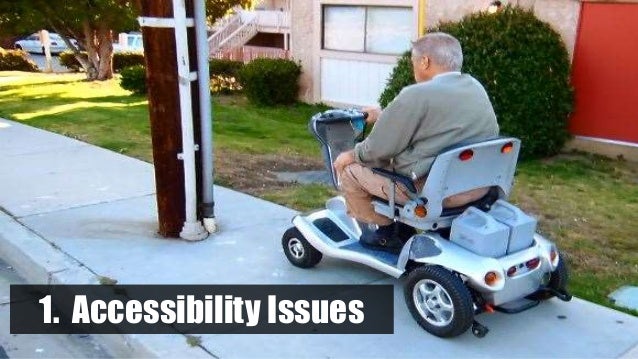
Although travelling with limited mobility can be daunting, research by home care provider Helping Hands has found that more than half of those affected (58%) believe travel companies have become more understanding of those with accessibility issues.
One thousand UK adults with accessibility issues were surveyed to find out if they experience issues whilst on holiday. Results show that taking a break from home has become less of a worry for those with limited mobility, with more than one in three people (38%) saying that they go on holiday a lot more now that places have become more accessible.
Those with accessibility issues can benefit in more ways than one from a break in their routine. Almost half of people surveyed (49%) said they go on holiday to improve their health and wellbeing, and a further third (33%) felt that going on holiday gave them a better standard of living.
Eighteen to twenty four year olds are the most likely to go on holiday to gain more independence, whereas respondents aged 55 and over are travelling to have more life experiences.
However, a significant amount of people surveyed still found travelling with their accessibility issues tiresome. More than a quarter of people (29%) had experienced companies that were unaware of how to deal with certain disabilities, both in the UK and abroad.
When it comes to staycations versus travelling abroad, almost one in three (30%) found issues with accessibility at tourist attractions in the UK, compared to just 23% whilst abroad.
Transport in the UK seems to be more suitable for those with accessibility issues, as less than one in ten (7%) had problems with transportation compared to 29% of those who travelled abroad.
Results also found a disparity between the opinions of men and women with limited mobility. 43% of women strongly agreed that there isn’t enough information available about holidays suitable for people with accessibility issues, compared to 22% of men. Almost one in three women (30%) also said they no longer go on holiday because they worry about accessibility issues, compared to almost one in five men (19%).
Richard Thompson, Accessible Worldwide Travel Organiser at Travel Counsellors explains how the travel industry has changed within the last 20 years for those with accessibility issues:
“Twenty years ago the main providers of accessible travel were charities and a couple of ‘disability specialists’ with extremely limited offerings.
“The industry is much more geared up to service the requirements of those with mobility, sensory and cognitive requirements. That’s not say there aren’t a ‘lot of dots’ to be joined up to make journeys easier to arrange and undertake. It’s certainly better but there’s a long way to go.
“Whatever your additional requirements might be, decide where you really want to go and follow your dreams. Have broad, exciting and challenging horizons. And never accept ‘it can’t be done’ - because in my world it usually can!“
Lindsey Edgehill, sales and marketing director at Helping Hands Home Care said: “It’s great to see that the travel industry is improving its offering for those with accessibility issues. We encourage our clients to take a break from their routine once in a while as it’s great for the body and the mind to have a change of scenery.
“We hope that people with limited mobility will be encouraged to go on holiday this year with the help of our research and our recommendations for the best locations to visit.”
It can be difficult to plan a vacation when accessibility issues are in the back of your mind. Helping Hands has conducted research in order to find the top five places, both in the UK and abroad that cater for those who need an extra helping hand.